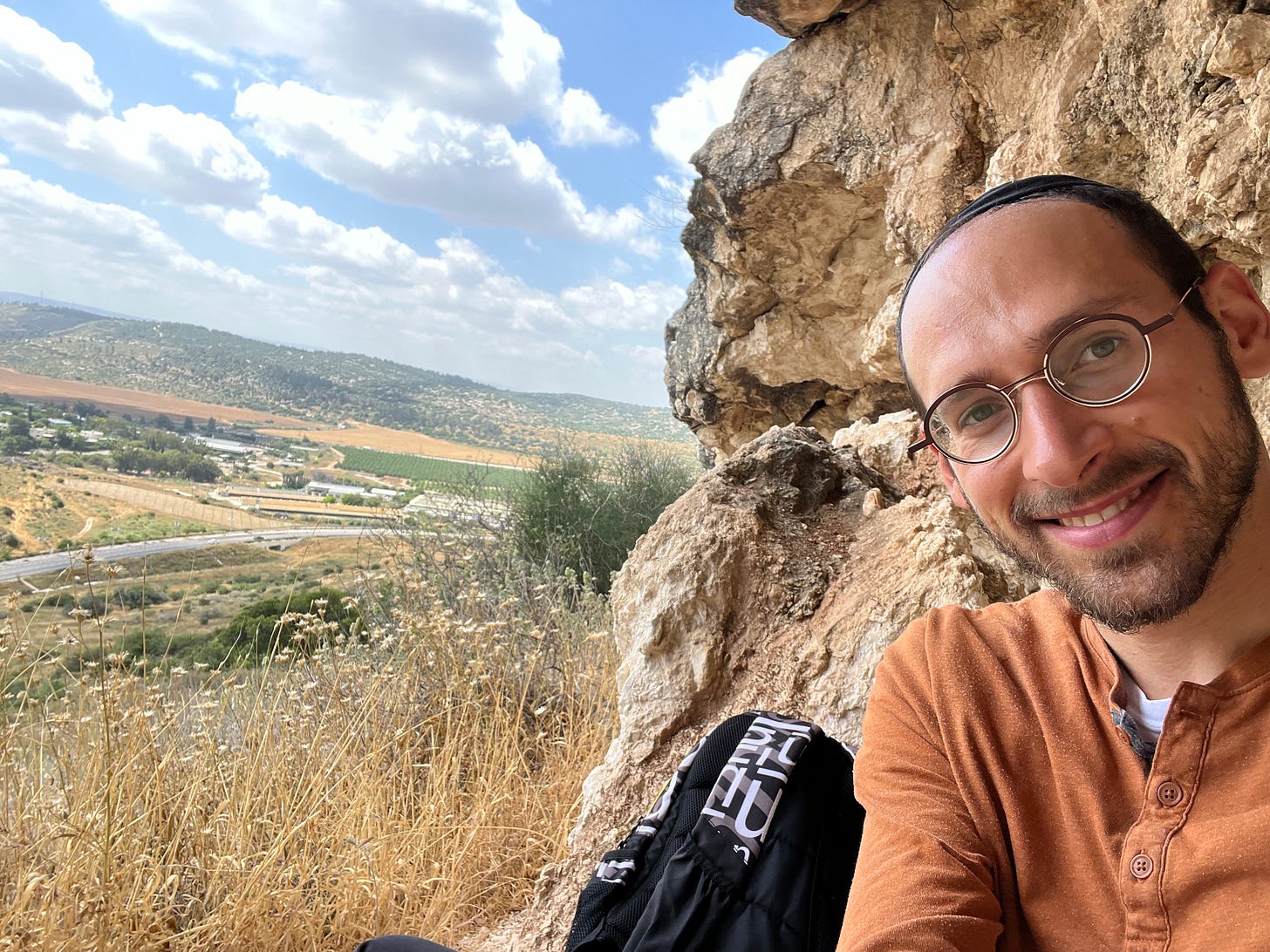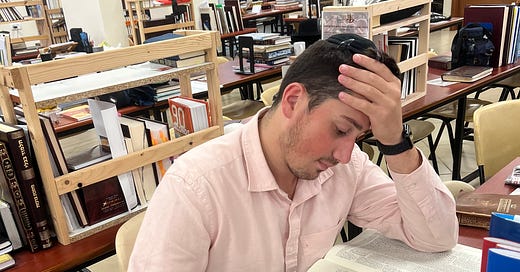Dear Healthy Jew,
Perhaps more than anything, many Jews are stressed out now - by the ongoing war in Israel, rising antisemitism, political instability, and, no less importantly, the daily challenges of life. Today we’ll take a close look at stress.
What’s Stress?
The first scientist to extensively research stress, Dr. Hans Selye, it in the 1950’s as “the non-specific response of the organism to any pressure or demand.”1 The original stressor can be large or small, external or internal, real or imagined, but the basic response is the same: we feel threatened and tense up in preparation to fight or fly.
It’s not a bad dictionary definition, but not very elegant. It also doesn’t suggest a natural solution: if we encounter a stressor, our organisms will respond with stress, whether we like it or not.
Let’s say I need to work and pray and shop and watch the kids and write this book, all while the sky above is booming because the IDF is entering Rafah and Hamas is still shooting up rockets that the Iron Dome is shooting down, who knows what’s gonna happen next, and I perceive the situation as “pressure or demands,” I’m condemned to stress.
Healthy Stress
For that reason, I find Victor Frankel’s (1905-1977) narrative of stress more useful.
In Man’s Search for Meaning (pp. 109-110), Frankel explains that “mental health is based on a certain degree of tension,” a principle he learned in the horrors of Auschwitz when he observed that prisoners with tasks waiting for them to accomplish had higher chances of survival. He credited his own recovery from typhus to his deep desire to rewrite a confiscated manuscript, which he began by jotting notes on scraps of paper while bedridden in the dark barracks of a Bavarian concentration camp.
Frankel described healthy stress like this:
The tension between what one has already achieved and what one still ought to accomplish, or the gap between what one is and what one should become.
Our human psyches are built to journey toward destinations that are larger and deeper than what we’ve already found. Future possibilities beg us not to suffice with past achievements; what we can become prevents us from resting peacefully with what we already are.
For that reason, as we learned in last week’s Healthy Jew online workshop, health hinges on energetic movement, which takes its basic form in briskly walking through life, always forward, always more. Just flip around the Hebrew word for person, adam, and you get the word for more, meod. “Man” demands “more.”
Harmful Stress
Stress becomes a problem when it’s intensified by a desire to control the future, often based on fear – whether from regular living or dramatic world events like our current crisis. Instead of helpful tension that extends out from the present moment, it urges us to rush after the future. Subverting now-stress’s confident call, future-stress whispers or screams:
“Forget what you already are. It’s not nearly enough; you must become bigger and better, right now. Past and present are irrelevant; what matters is arriving at the future, or at least knowing what it will bring.”
Long before October 7, I spent years lost in the future, resulting in severe stress. I feel stress in my body: chest, shoulders, neck, stomach, back. And I feel it in my spirit: fatigue, worry, irritation, unrealisticexpectations from myself and others.
When I finally got some perspective on my stress, some years ago, I became aware, and I’m not exaggerating, that much of it was built around a constant urge to research and write several hundred years’ worth of profound wisdom, all over the next few days. I don’t mean a general desire to master the contents of a library, but specific projects that are completely realistic except for their deadlines being several centuries off. No wonder I was always terribly busy, unable to let go and let be. (I’m still a work in progress…)
Return to Now
Whenever we suffer from harmful stress, carrying today all potential pressures, problems, and obligations, we can choose to pivot back to the present moment, focusing on what we’re doing right here and now. No matter what might happen next, we can accept that we are exactly what we are today, briskly walking along toward whatever we will become, in God’s way, at God’s pace.
Returning to right now is profoundly simple, but not always easy. People have been falling in the hole of future-stress for millennia, and have been searching just as long for strategies to climb back out. Like everything in healthy Jewish living, finding the present moment takes effort and practice.
Mindfulness-based stress reduction programs teach specific techniques for paying attention and appreciating this gift of life. If we’re feeling anxious or tense – and even when we’re not – they’ll suggest to calmly observe the feelings in our bodies and watch them in our minds. By combining both formal and informal practices, we come to be calmer and more focused.
In his final piece of mental health advice for Saladin’s son, the Rambam (Maimonides) too suggested returning to the present moment:
Here’s why depressing thoughts about the future are worth putting down. Everything a person worries will happen is a possibility: maybe it will, maybe it won’t. The same way you can hurt and worry maybe your fear will happen, so too it’s proper to expand your spirit with trust in God, because it’s just as possible that the opposite will happen.2
If you’re feeling stressed out, meditating a minute on this idea isn’t a bad idea.

Thank you for reading Healthy Jew.
Here are 2 great paths to continue the journey:
Also check out this intro and index to explore hundreds of posts about our 3 Healthy Jew topics: Wellness with Wisdom, Land of Life (Israel), and Sensible Spirituality.
Finally, always feel free to reach out here with any comments, questions, or complaints:
I look forward to hearing from you!
Be well,
Rabbi Shmuel Chaim Naiman
https://www.stress.org/what-is-stress
Regimen of Health 3:19








Great piece! BTW, Hans Selye also did not think that stress was bad. In his classic 'stress without distress' (out of print but I have an old copy) his thesis is that without stress nothing will happen and it's only 'too much' stress that causes trouble.